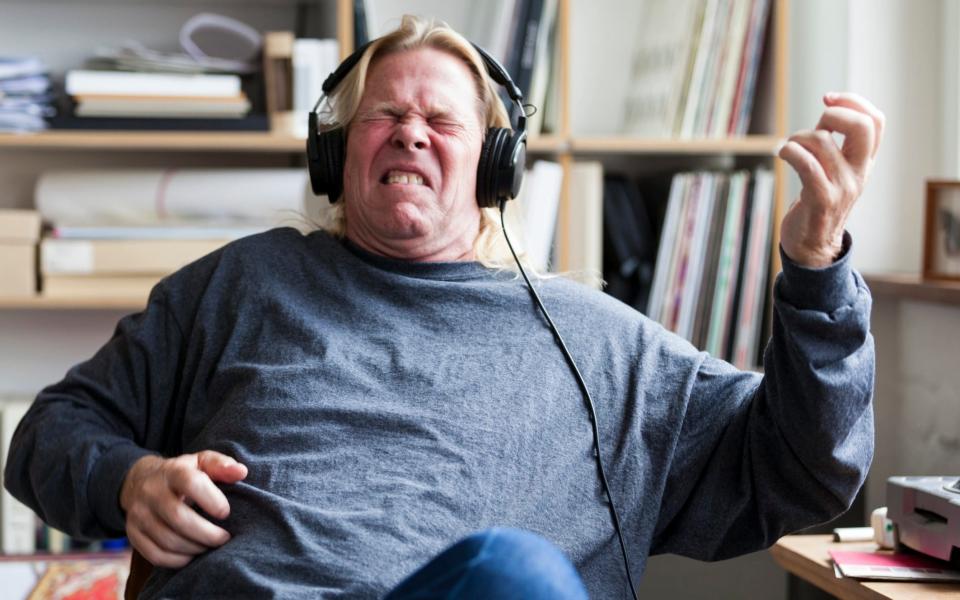Is loud music ruining your hearing – and what can you do about it?

Have you ever been to a rock concert or club, got home, tucked yourself up in bed, and realised that your ears are ringing?
Often, we don't realise when we're harming our ears, which is why you only notice the ringing once you get home. The good news is that the ringing after a night out will normally wear off soon enough – the bad news is that sometimes, the damage is permanent. after a while – but damage is permanent.
Yesterday, the Royal Opera House (ROH) lost its appeal over the case of its viola player Christopher Goldscheider, who experienced life-changing damage to his hearing while playing for the company. The Court of Appeal ruled that the ROH failed to take reasonable steps to protect the musician's hearing.
During a rehearsal, the bell of a trumpet was located directly beside Goldscheider’s right ear, producing noise of up to 132 decibels. According to sonic comparisons from Purdue University, that’s louder than a military jet taking off from an aircraft carrier.
Obviously that’s not a level of noise that most people will encounter very often, but we’ve probably all encountered fellow passengers blasting music on the train and wondered what they might be doing to their hearing.
We know that wearing headphones can have ill effects on our hearing. According to a 2018 study from Erasmus University Medical Center in Rotterdam, 14pc of 9-11-year-olds have at least some level of hearing problems, an issue which the researchers blame on headphone usage. Regardless of the length of time they wore headphones or the volume they set, the children who used them just one or two days per week were over twice as likely to suffer some form of hearing loss compared to children who didn’t use them at all.

So how does loud music affect your hearing and, more importantly, how can you protect your hearing?
“The hearing system is made up of a mechanical process," explains Duncan Collet-Fenson, managing director of Aston Hearing and Association Of Independent Hearing Healthcare Professionals spokesman. "Sound travels down the ear canal to the ear drum that vibrates. Attached to the eardrum is the malleus, then the incus and stapes; three very small bones which transfer those mechanical vibrations into the small hairs or nerve endings in the cochlea or inner ear, which becomes an electrical signal into the brain."
“Extremely loud sounds can disrupt that system and cause irreparable damage to the hearing systems, in general, at the nerve endings. If you get a very loud sound like an explosion it can cause what’s known as barotrauma, which can damage the mechnical part. That damage is reversible.”
According to Collet-Fenson, noise protection is recommended whenever you’re listening to anything from about 85 decibels upwards. “At 85dB you can listen for about eight hours before there’s any long term damage, but for every 3dB louder than that, you half the wearing time. It doesn’t take long before you’re into very loud sounds which can cause damage after listening for only short periods.”
Thankfully, you can delve into the settings of most modern smartphones to make sure you’re listening either at 85dB, or at least you’re not exceeding a level that you shouldn’t be listening at for long periods of time.
A good pair of headphones will also go a long way, says Collet-Fenson. “Typically lots of people have really bad in-ear earbuds with lots of sound leakage, so they have to turn up the music to counteract the leakage. More recently we've gone to wearing proper 'can' headphones, and they're good because they'll cut out a lot of background noise and there's less leakage, so the wearer can reduce the volume which is much better for their hearing.
“Noise-cancelling headphones are quite good because they reduce the leakage, reduce the noise, which is good if people are using those advantages to turn the volume down. But that's yet to be proven.”
He also recommends bone-conduction headphones which don’t go over or into the ears at all, instead using the bone of the skull to vibrate the sound through, meaning that high volumes aren’t necessary for the sound.
And what about live music-goers? “Any sort of noise protection is good. Foam is a great start as long you put them in properly. If you're a regular live music-goer or if you're rehearsing, you can get custom made music plugs. They're really good and they reduce all the music frequencies by the same amount so it's just like turning the volume down. You can listen for 10-12 hours with no difficulty hearing at all and no compromise of sound quality either.”
It’s also vital to make sure your ears get a bit of a break. Wearing headphones or being in noisy environments all the time is terrible for your ears, adds Paul Checkley, clinical director of Harley Street hearing: “Much like the rest of your body, you need to ensure your ears get rest time. So make sure you always have time in quieter environments to manage and help monitor noise exposure.”
As with most things, doing something is better than doing nothing. If you have reduction in your hearing and it's down to the cochlea, the inner ear, it’s irreversible, so the sooner you can make a change, the better.
